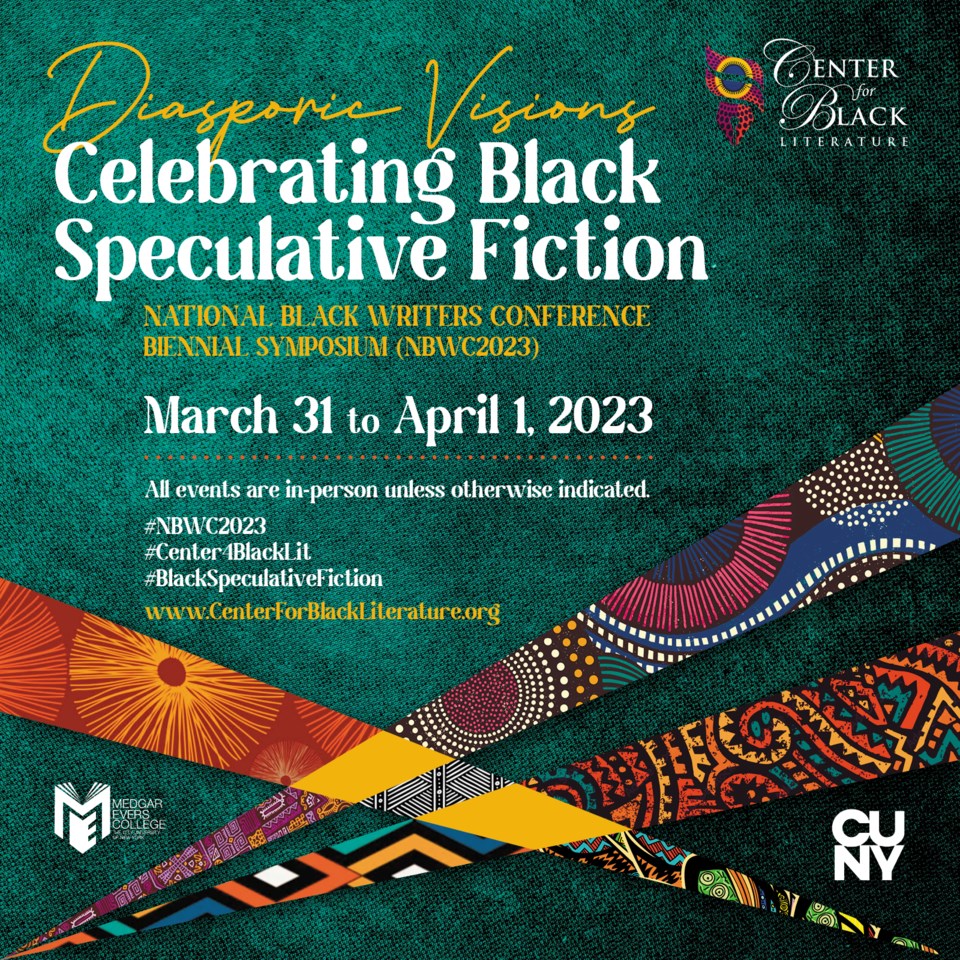In Octavia E. Butler's 1993 novel, “Parable of the Sower,” she writes of a dystopian future in the United States during a time of social inequality and environmental collapse.
Set in the 2020s, the book makes eerily accurate predictions of a world plagued by a severe drought caused by climate change, leading to water scarcity and widespread environmental degradation; a society marked by extreme economic inequality, with the rich living in walled enclaves and the poor struggling to survive in the streets; and the rise of authoritarian figures and paramilitary groups, who use violence and intimidation to maintain control.
Butler is just one among scores of Black speculative fiction authors who, over the past century, have made such spot-on predictions for a future society or rearranged reality in their writing to include time travel, space travel, Afro-magical superheroes and ancient Afro-spirituality.
But, for these writers of the African Diaspora, it’s about more than re-imagining dystopian futures or utopian pasts; it’s about a universal present so mind-bending in its transgressions that speculation becomes a literal, literary tool of survival.
Beginning March 31-April 1, The Center for Black Literature at Medgar Evers College in Crown Heights will host its biennial symposium of The National Black Writers Conference, Celebrating Black Speculative Fiction.
At the conference, Sheree Renée Thomas — award-winning author and editor of The Magazine of Fantasy & Science Fiction and of the Dark Matter: A Century of Speculative Fiction from the African Diaspora anthology (2000); and Dr. Jewell Parker Rhodes — a novelist educator and author of several books for children including the New York Times bestsellers Black Brother, Black Brother and Ghost Boys, which garnered over 30 awards and honors, including The Walter Award, the Indies Choice/EB White Read-Aloud Award — will be honored with the Octavia E. Butler Award.
In advance of the conference, both authors sat down with BK Reader to discuss the genre of Black speculative fiction, its origins, rising relevance and the evolving landscape for Black writers who are pushing past boundaries through fiction.
BK Reader: Why do you think we are beginning these conversations around the importance Black Speculative Fiction now?
Sheree Renée Thomas: I feel like the conversation [around Black speculative fiction] has been happening for some time. When I think back on the writing that really impacted me, Octavia E. Butler, Samuel R. Delany — who is a pioneer and still creating work in multiple mediums — Steven Barnes and the late Charles R. Saunders, Jewelle Gomez and also the work we don’t think about as science fiction — Jewell Parker Rhodes whose novels were vital to my development and parts of my imagination in seeing what we can do with words and what kinds of stories can be a part of the genre. … Their careers have been going on for some time. And the writing is timeless. As a people, we are always striving to be more free and to be more possible in the world. And the genre of the imagination is an important vehicle to that.
BKR: Well, why do you think, then, the genre is really beginning to accelerate and come into its own?
Jewell Parker Rhodes: I remember growing up and not knowing that Black people wrote books and didn’t discover the fact that, “Oh, you mean I can write a novel?” until I was a junior in college. And Octavia Butler, Samuel Delany, Tananarive Due, Jewelle Gomez … We were all affirming the right to tell stories that involve our ancestral heritage. I always thought — even though I taught science fiction and fantasy — that I was just a historical fiction writer. But as the field has developed, speculative fiction has become so much a broader umbrella, so the whole thematic combinations of ancestry, the right to be here, the more diverse universe — all of that is part of what I try to do too. So I think it’s cool to have speculative fiction really come into its own, as opposed to "We were speculating one day we might have some more freedom to tell our own stories," [laughs]. And we have lots more stories to come!
BKR: What sort of challenges, if any, have you experienced as a Black author who is “genre-bending”?
JPR: The idea that there is another world, another universe, or other histories or other stories, is very compelling to us as Black writers and artists in theater, music, film … The problem is, the master narrative keeps getting in the way. So they want to turn your Vodou into a barbaric stereotype. Or for some people, the music is "too complicated." Or even the way in which we bear witness to civil rights, you know, raising our fist or taking a knee becomes too much for them. So the people that green-light our projects need to be more a part of our community; to engage in the rainbow of beauty that we’re engaged in. They don’t have that cultural background to know much about how the oral tradition impacts our culture.
SRT: The challenges Black people face in publishing are similar to the challenges they face elsewhere: No matter what industry you look at, there is, as Jewell said, this master narrative that gets layered over the work you do. And so, we have to work very hard to connect with those editors, those publishers who not only see your vision, but are invested in your vision and want to help you get it to the world, as close to your original vision as possible, and not want to change it into something else. People who trust you are the expert on the audience for whom you’ve written your work. In the editorial meetings [at publishing houses], they’re fully aware that they are shaping the consciousness of the world through what they’re putting out. And they believe that they’re the expert on your culture when they don’t even know any Black people personally.
BKR: But we have seen some revolutionary writers through the years writing beyond the pale, like the Toni Morrisons and the James Baldwins and the Zora Neale Hurstons. What do you think might be behind some of the pushback around speculative fiction?
SRT: Even though lots of wonderful writing has been and still is being published, [major publishing houses] move with what they think is trending in the Black community, versus allowing Black people to just write what they want to write when they want to write it. Like, I remember in the 90s, they were like, "Oh, Black people are reading urban literature? Let’s green-light all this urban literature." And so all the other things we might want to write about, such as mysteries, or our culture or healthy diets — those things get pushed aside, because they’re not trending. But we want access to the rainbow of experiences that everyone else has.
JPR: Historically, there was so much prejudice. I remember my first book, they couldn’t figure out who was gonna read this book. … For many of my books, they were like, "Oh, can you make it more like an urban fiction novel?" Or they only wanted to put you in Black bookstores with very limited, very tailored book tours, instead of the rainbow of bookstores. And on top of it, they let you know if you don’t go through it the way we tell you to, then we’re not going to publish you again, which is traumatic. But our books are for everybody. You could be purple and have stripes and still have empathy with the characters in my books. But things are better now. And I love love love the publishing houses that I’m working with.
BKR: For readers who are new to the genre of Black Speculative Fiction, please recommend one book they should start with.
JPR: “Song of Solomon,” by Toni Morrison. It shows the diversity of Black humanity.
SRT: “Dark Matter: A Century of Speculative Fiction from the African Diaspora.”
To register for the "Black Writers Conference, Diasporic Visions: Celebrating Black Speculative Fiction," go here.





